For three decades, Georgia and Florida have been battling over how to share a precious resource: water. Georgia has it, and Florida, which is downstream, says it's not getting its fair share. The dispute is once again headed to the U.S. Supreme Court, where Florida wants the justices to cap Georgia's water use. But a court-appointed special master recently rejected that idea.
More than 6 million people depend on water that starts at Lake Lanier, a reservoir northeast of Atlanta. It generates hydropower as its water is released from a dam into the Chattahoochee River.
"We generate power based on a peak demand," says powerhouse manager Cecil Quinley, with the U.S. Army Corps of Engineers.
It's a big lake, covering some 60 square miles, but it fills slowly. In times of plenty, there's enough water to serve the needs of metro Atlanta plus communities, industry and farming in southern Georgia, eastern Alabama and a section of Florida's panhandle.
The problems arise when there's a drought.
"A one-year drought doesn't cause particular complications, but a three-year drought does," says Katherine Zitsch, with the Atlanta Regional Commission.
A drought from 2006 to 2008 led then-Gov. Sonny Perdue to hold a prayer meeting for rain. It also gave urgency to efforts by Florida and Alabama to fight for their share of a scarce resource that's becoming even more unpredictable as the climate warms.
After two decades of talks and lawsuits, Florida finally went to the Supreme Court in 2013, asking it to limit how much water Georgia could use.

In Georgia, high-efficiency toilets and limits for farmers
Zitsch says Georgia has done a lot to limit its use. "It's high-efficiency toilets," she says. "It's conservation pricing, where the more water you use, the more you pay." It has worked so well that despite growing by 1.5 million people since 2000, metro Atlanta uses 10% less water.
Zitsch say the next step is to update water treatment plants so communities can reclaim water that was being lost. Gwinnett County has spent nearly a billion dollars building a plant that now gets wastewater clean enough so that it can be returned to the lake.
The Flint River is also part of the lawsuit. It starts near Atlanta and meanders south to the border with Florida, passing through pine forests and providing water for small towns and lots of farmland.
"If you want to grow a reliable, dependable quality crop," says Christopher Worsham, "it takes water. And it takes a lot of it."
Worsham's great-grandfather used mules to raise row crops here in Camilla, 50 miles north of the border with Florida. Now the family-run business, Worsham Farms, has a cavernous warehouse where pecans are sorted and bagged. Most will be shipped to China, a big market for premium Georgia pecans. Worsham also raises peanuts and corn, and they all require irrigation.
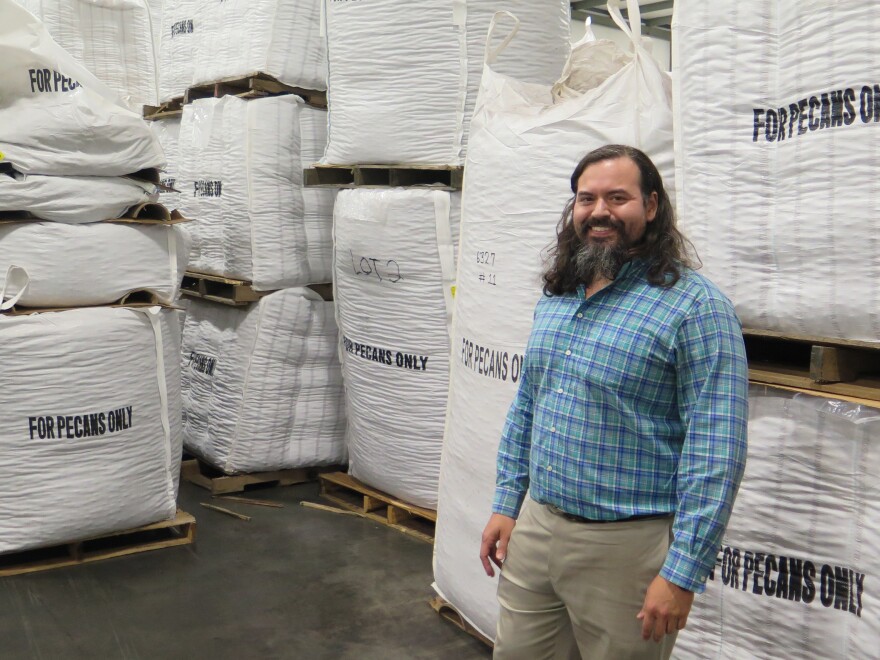
Because of the droughts and the lawsuits, Georgia had to take a hard look at the water it uses for farming. It has placed a moratorium on new wells for agriculture and is requiring all farmers to move to more efficient irrigation systems.
A short distance from the warehouse, pecan trees are lined up in rows. "This is actually where the water's coming from," says Worsham, as he bends down and points out a small black tube about the size of a straw. All his trees use this efficient drip irrigation.
For crops such as peanuts and corn, farmers have moved to low-pressure irrigation systems that use less water and lose less of it to evaporation. Most also now use soil sensors to let them know when and how much to irrigate.
"I don't see any of the other states doing it," says Worsham. Just across the state line, he says, "you can dig a well, and pump as much water, and do whatever you want."
Georgians say they're working to conserve water and are willing to compromise, but wonder if the same is true in Florida.
In Florida, estuary ecosystem faces "a slow death"
At the southernmost point of the Georgia-Florida water dispute is Florida's Apalachicola Bay, where there's not enough fresh water coming downriver to keep the estuary healthy.
"It's almost like a slow death," says Apalachicola river keeper Georgia Ackerman. "It's very difficult to watch."
She says the water has declined so much that the needs of this local ecosystem are not being met. "So it's kind of like we were taught in kindergarten. We need to share, and we need to share fairly."
Ackerman navigates an aluminum motorboat into the delta where the Apalachicola River and its tributaries empty into the bay.
"This used to be a breeding ground, you know, for shrimp and fish and crabs," says Shannon Hartsfield, president of the local seafood workers' association. "It's all changed up drastically."
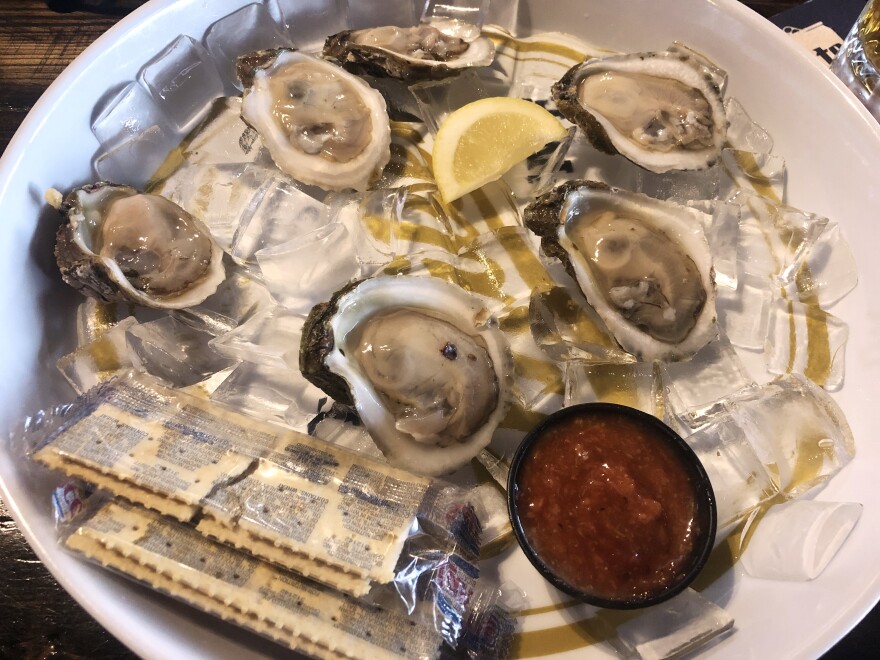
This is where the river meets the Gulf of Mexico and the tides mix salty seawater with the fresh river water flowing downstream. It's the perfect brew for what has historically been the most famous harvest here — oysters.
"Apalachicola oyster is known for half-shell oysters," Hartsfield says. "Everybody wants to eat them raw."
But they're hard to come by. Hartsfield comes from a family of oystermen and has watched the fishery decline in the last 20 years. After an extended drought, there was a total collapse in 2012. Hartsfield says it has yet to recover — going from more than 300 working oyster boats when he was a kid to about a dozen today.
"If we go through another drought that's even close to the 2012 drought, that's going to completely devastate and finish us off," he says.
As we move upriver, the vegetation changes from salt marsh to more of a wooded riverbank with towering cypress trees.
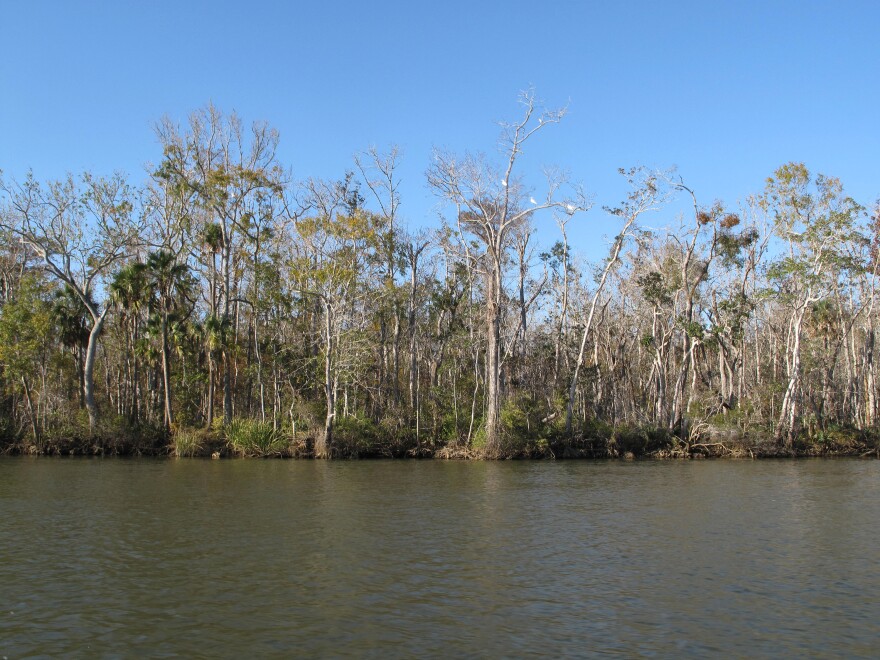
My tour guides point out what has already been lost, including millions of tupelo trees, and the freshwater marsh grasses that have been choked out by salt water creeping farther inshore.
UNESCO has recognized the region as a critical biosphere reserve.
"Without the Supreme Court giving relief to Florida from Georgia's domination of the water, we will see this ecosystem go away," says river keeper emeritus Dan Tonsmeire.
He has watched as attempts at a congressional remedy and tristate negotiations all failed to get more water downstream, leaving the question now to the Supreme Court.
Apalachicola is old Florida — no high-rise condos or big-box stores. Shops and restaurants downtown draw tourists alongside what's left of a working waterfront.
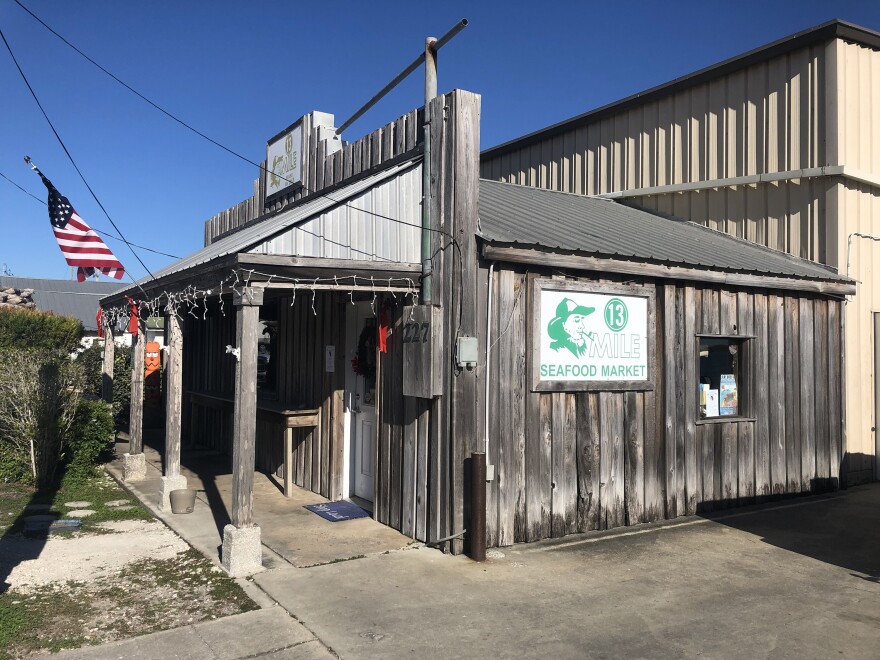
But once bustling seafood-processing plants are closed up and for sale. One of the few still in operation is , where workers in early December are hosing down the stainless steel shrimp-sorting table.
"It's kinda slow here now, so we're doing our maintenance," says Joseph "Smokey" Parrish, who has worked here for 37 years, overseeing the wholesale shrimp operation.
Parrish is also a Franklin County commissioner who has been embroiled in the water war since he was first elected in 2006.
"I've lived it my whole life," he says. "And I represent the people in Franklin County and all these jobs that we're losing."
Parrish says nearly 5,000 jobs are at stake if the fisheries here collapse.
"That's nothing for metro Atlanta. So in comparison, it may not mean much," he says. But what's at stake is "our history and our heritage and our way of life."
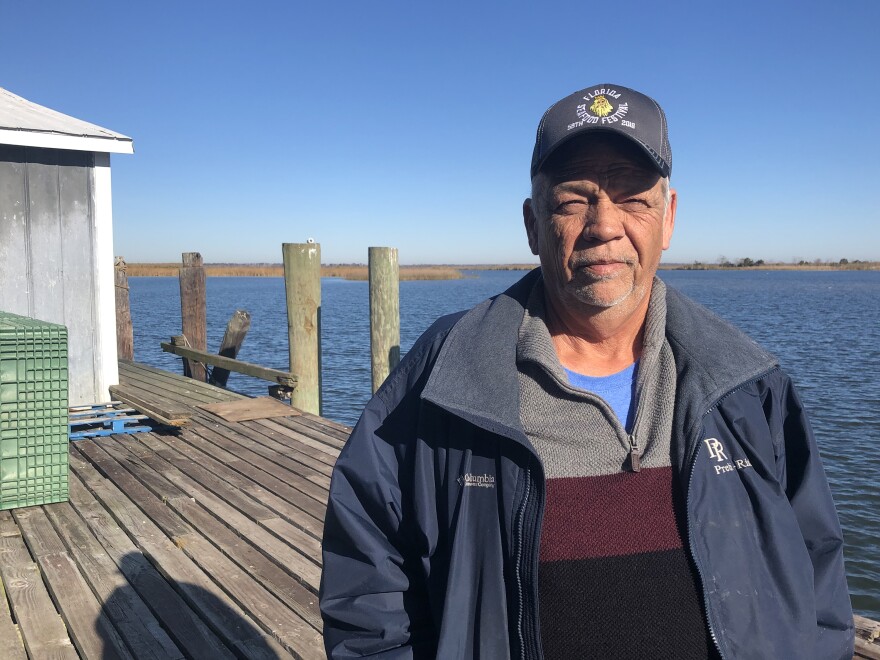
These issues are going to become more critical with climate change, says Robin Kundis Craig, the James I. Farr presidential endowed chair of law at the University of Utah.
She specializes in water law and says compacts have worked in the West where water is scarce. But she says there's a different dynamic here.
"Climate change is introducing the East to bigger and worse droughts, but also bigger and worse floods," Craig says. Figuring out how to share water given that extreme variability may be even more difficult than simply coping with a shortage.
"Ecosystems need water too," she says, "and there's no real precedent for how to fit that into these equitable apportionment decisions."
Copyright 2021 NPR. To see more, visit https://www.npr.org. 9(MDAxODc1NzUzMDEyMTgyMjc0NzUxZmVhMQ004))





